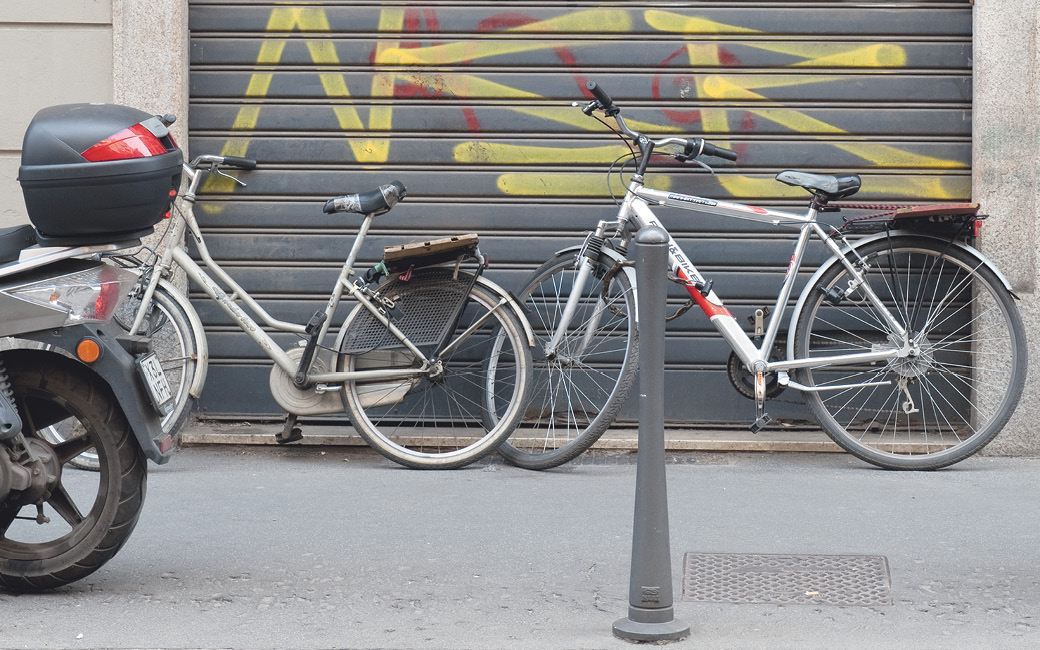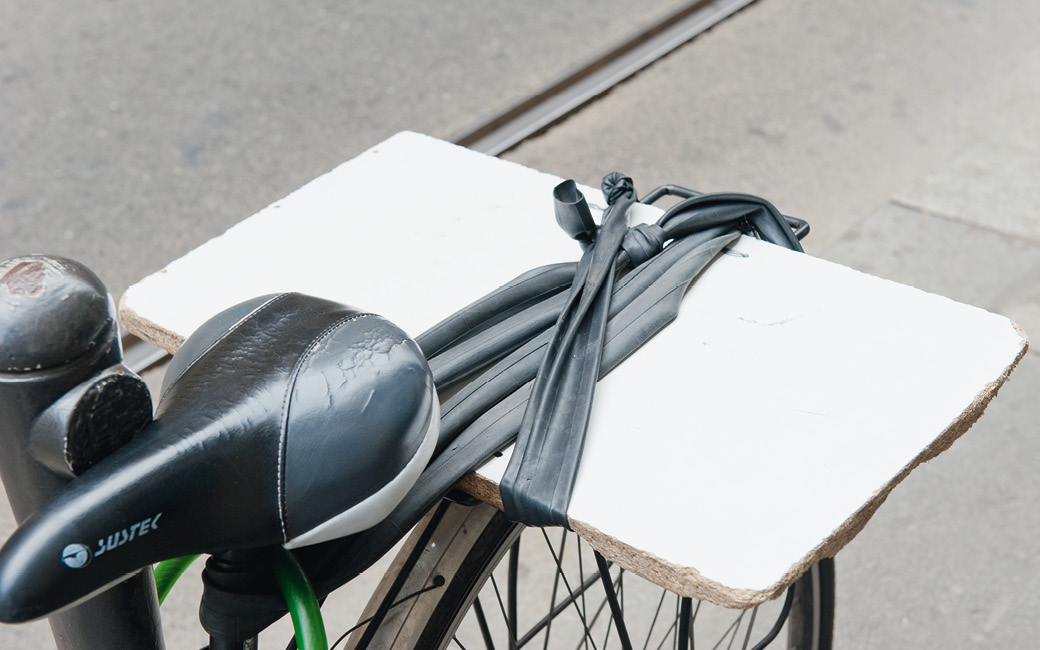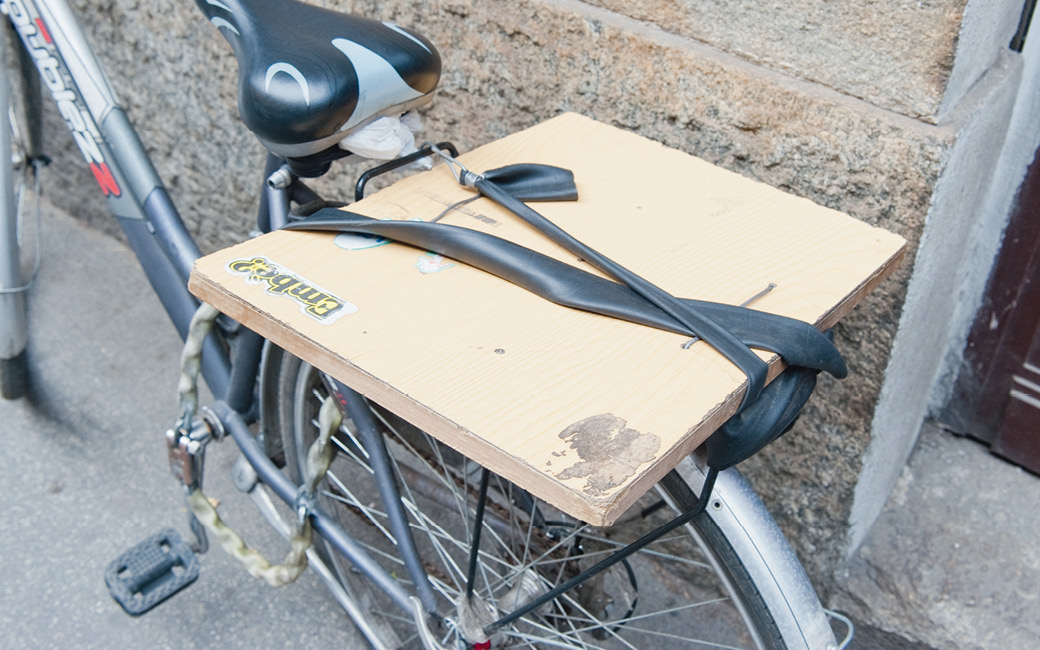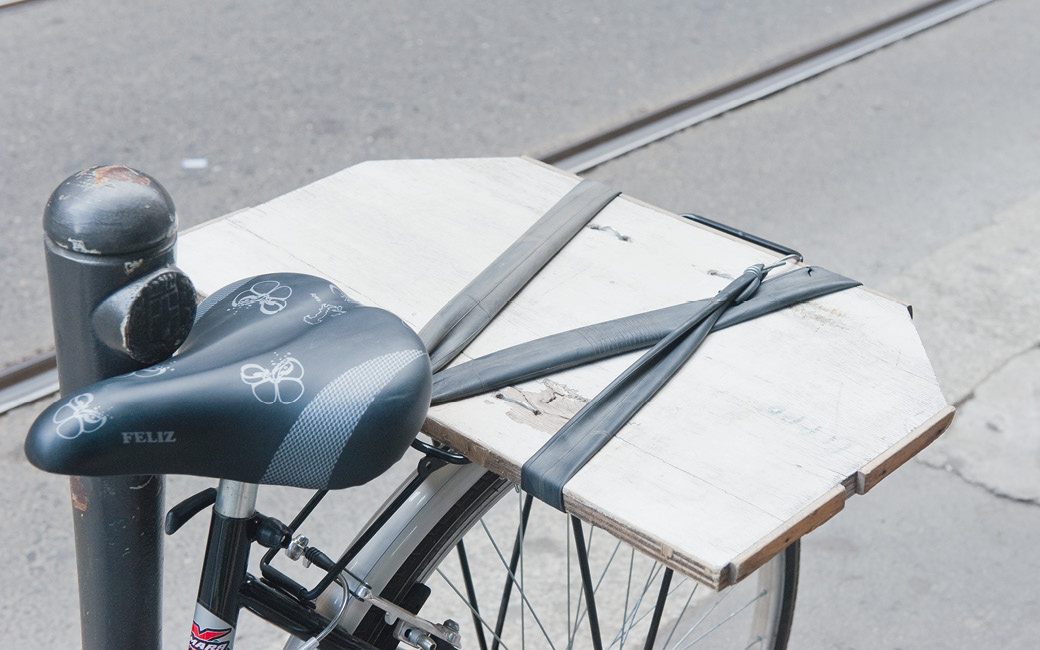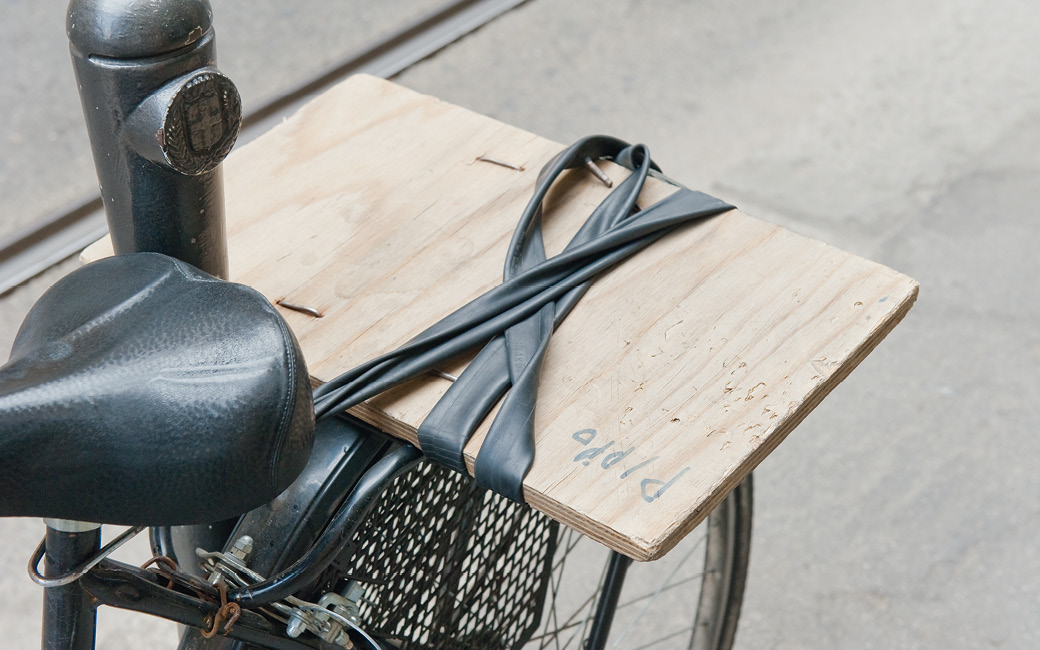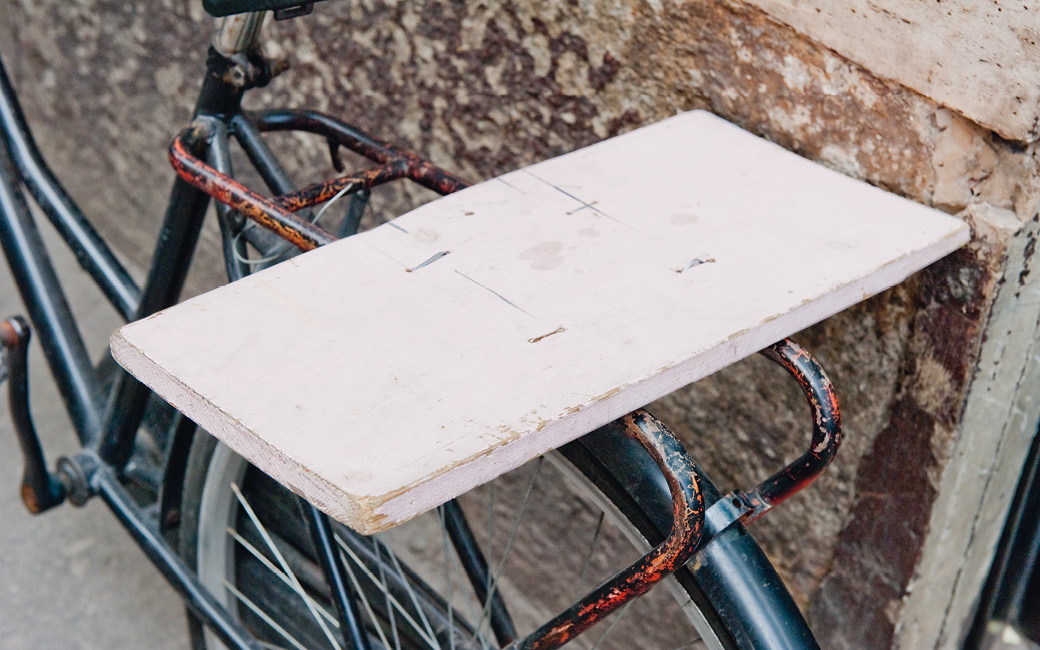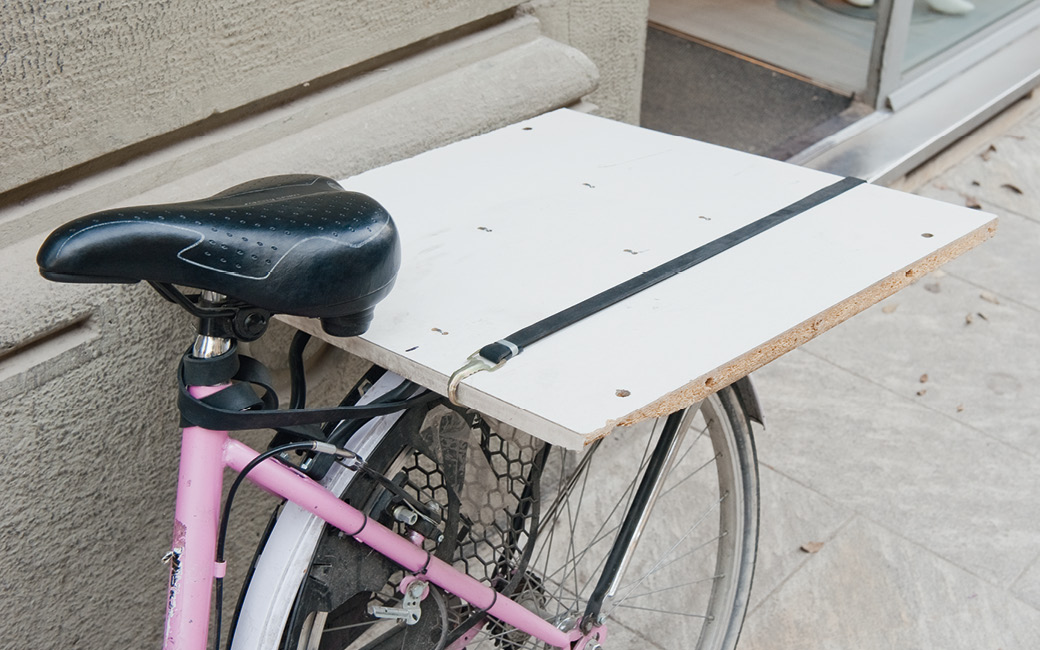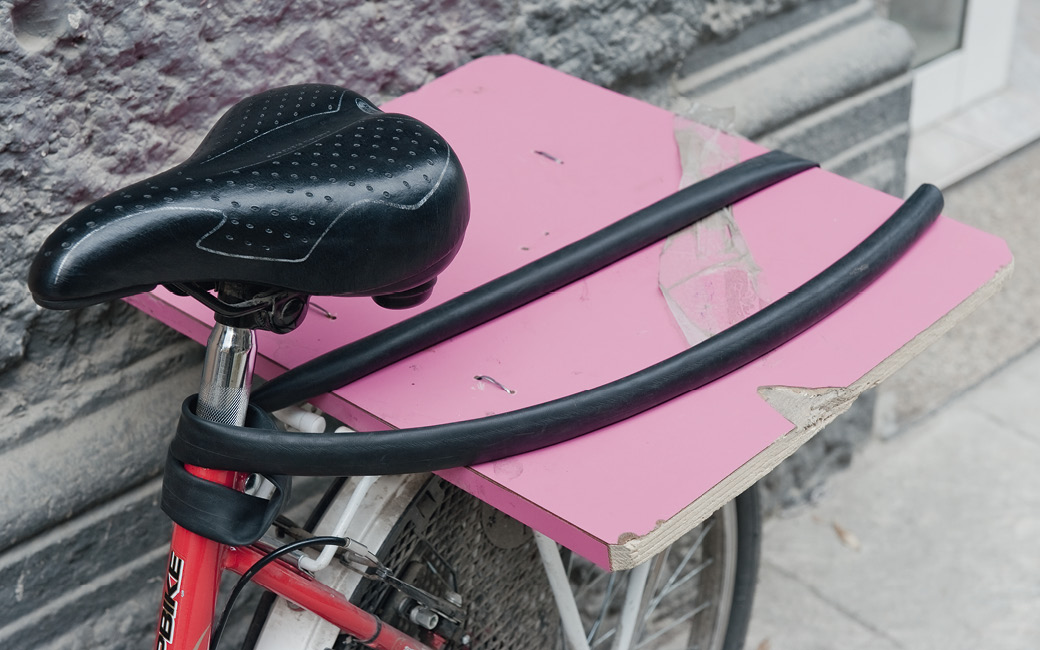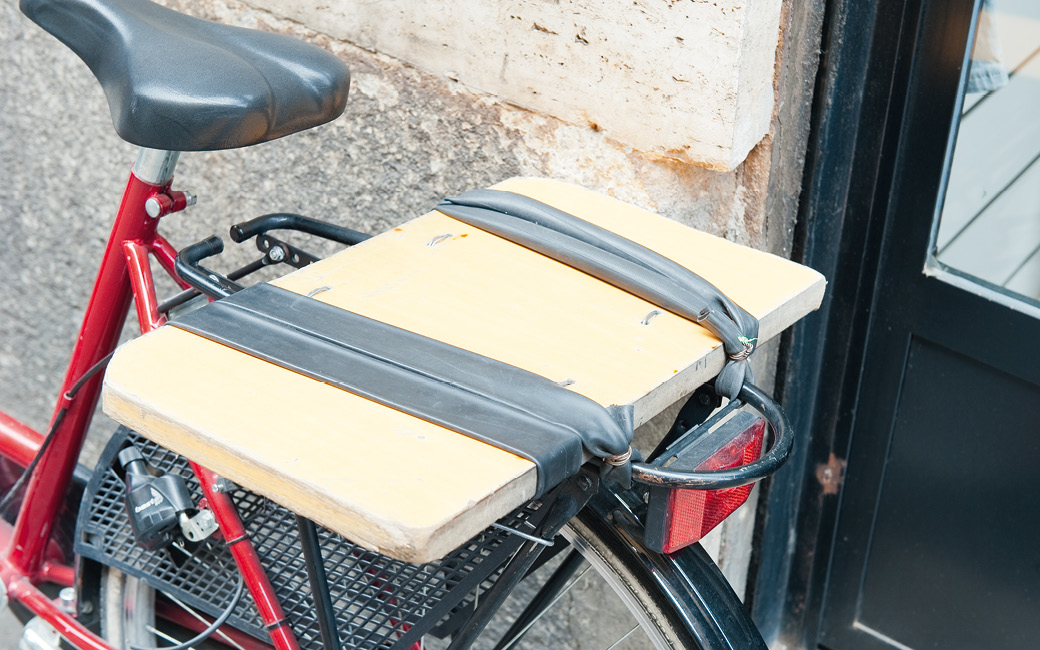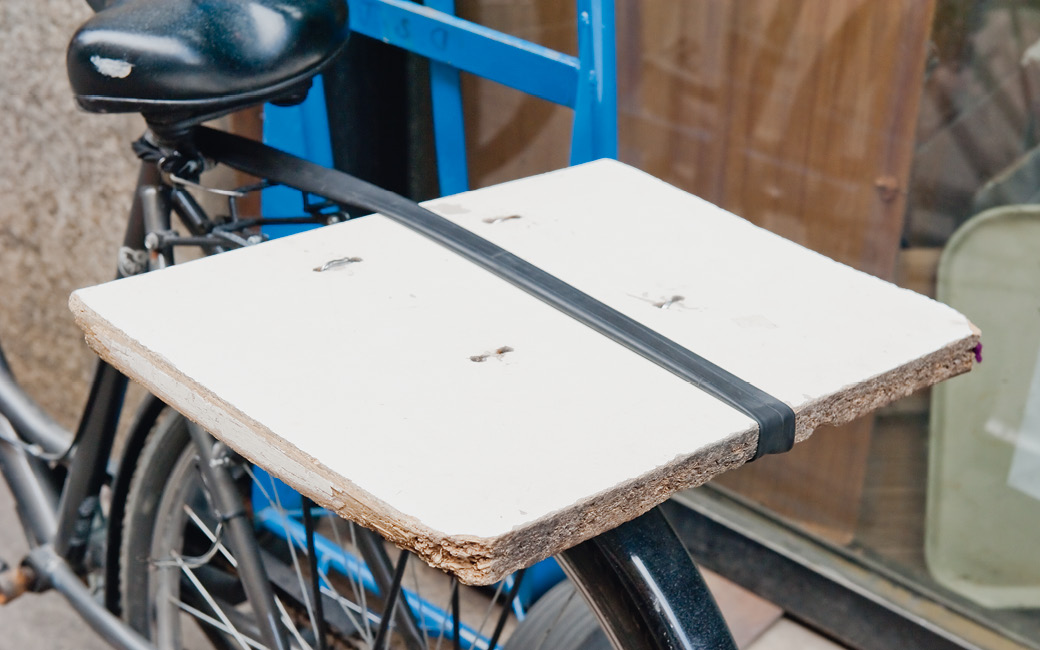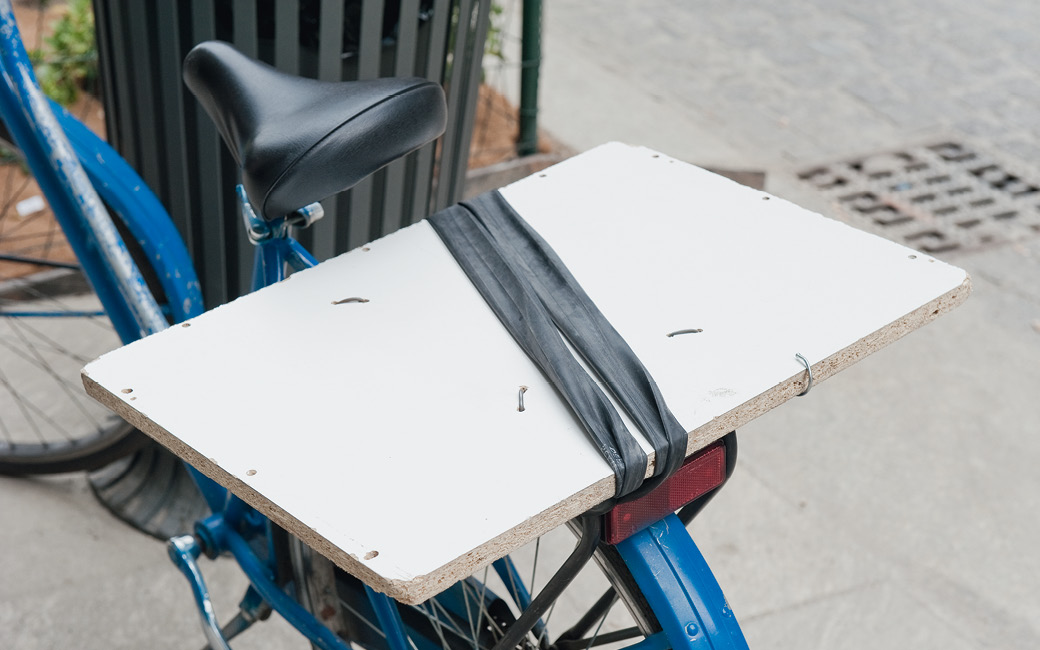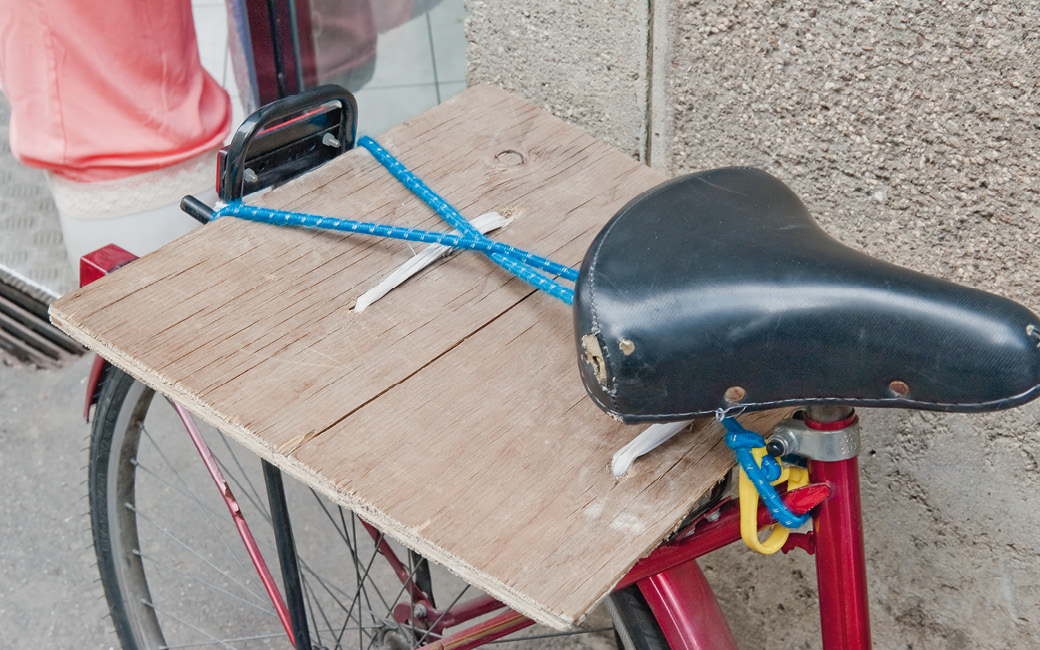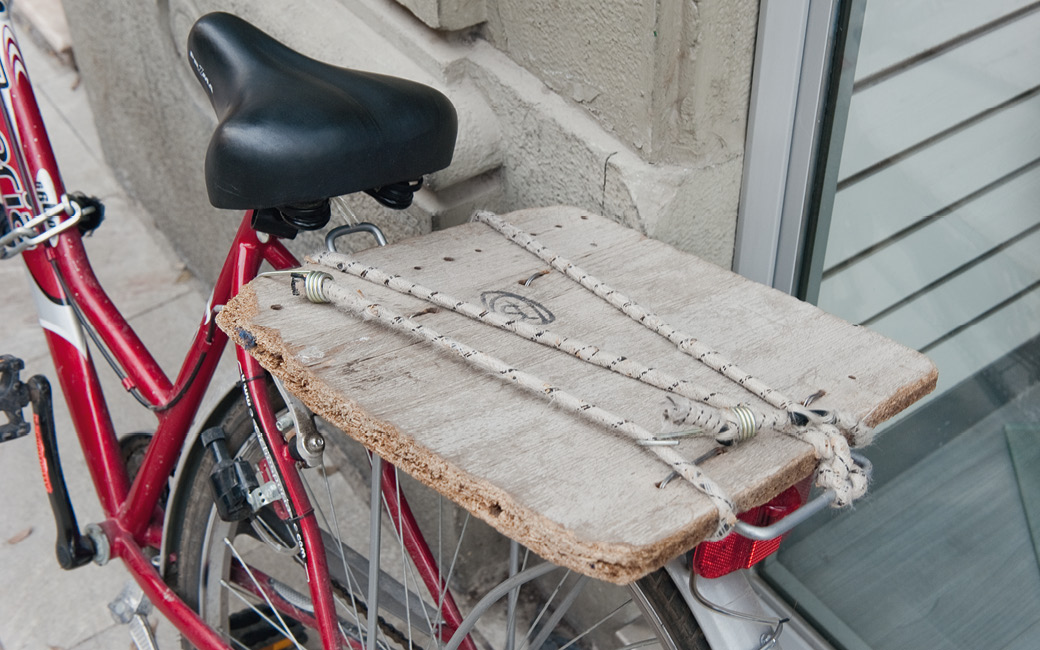Since 2008, Jo’s art has often focused on the culture of everyday life in China, attempting to capture the more prosaic aspects of everyday life in a period of dramatic economic and social transformation.
SMALL BUSINESS RECONSTRUCTED
Photography, Model Building, Installation, 2009 onward
In the project SMALL BUSINESS RECONSTRUCTED, Jo focused his attentions on Chinese street kitchens. These kitchens are typically open late into the night and serve itinerant workers, migrants recently arrived from rural areas and the residents of traditional “Hutong” neighbourhoods. To begin, Jo documented scenes with such kitchens in photos and then, once back in his studio, he painstakingly recreated these scenes, down to the smallest detail, as miniature, scale models. Jo explains his aim with this approach: “The interesting aspect of this for me is the tension created between the apparent perfection of the models and the improvised reality of the street kitchens themselves.”
SMALL BUSINESS RECONSTRUCTED has been exhibited on its own in Leipzig, Essen, Berlin and in the Norwegian design centre at Dale i Sunnfjord.
“Anti-idyll in HD: Zarth’s miniatures serve as a means to explore the world of contemporary China, a reality which one suspects may be providing us with a glimpse at our own future. There the endless drive for efficiency has been coupled with a return to the ideas of urban modernism, a form which many in the ‘old’ world thought had been consigned to the dust bin of history.”
(Robert Schimke in the exhibit catalogue)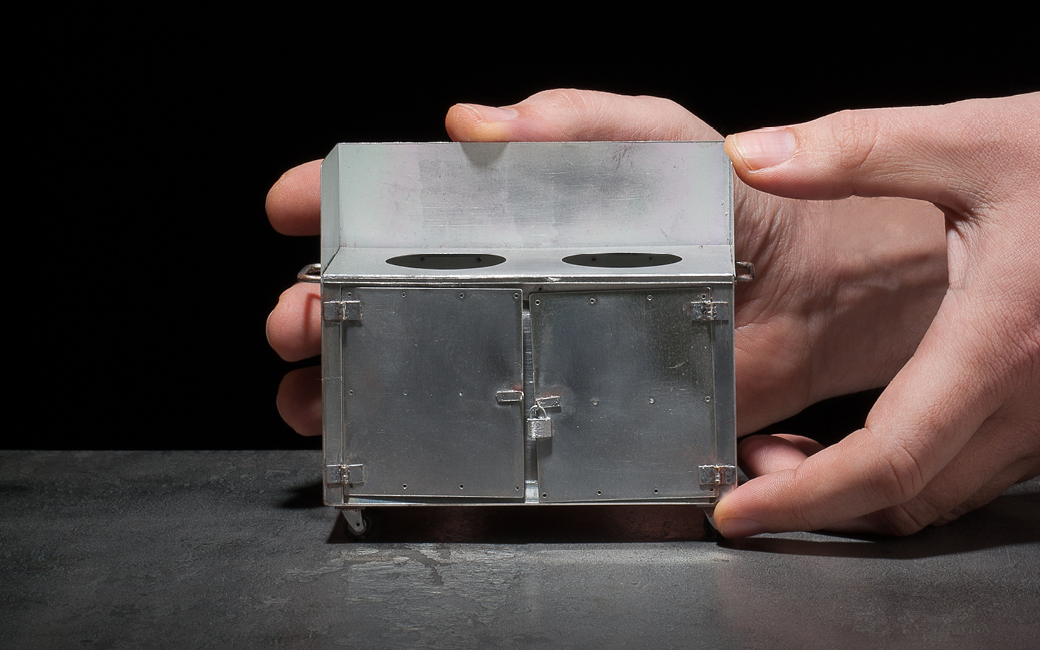
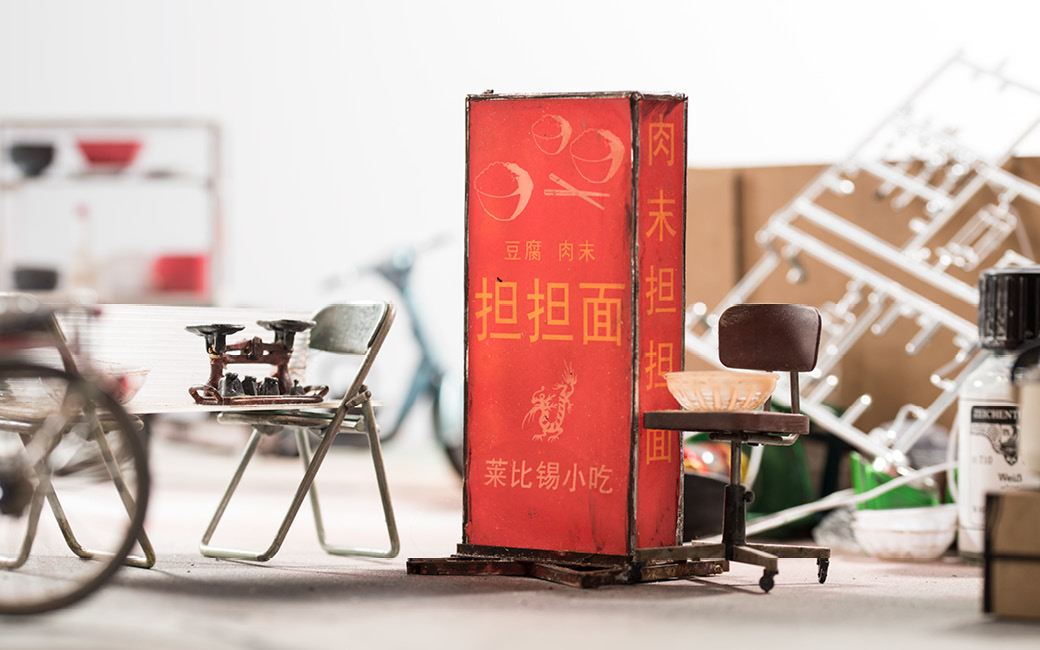
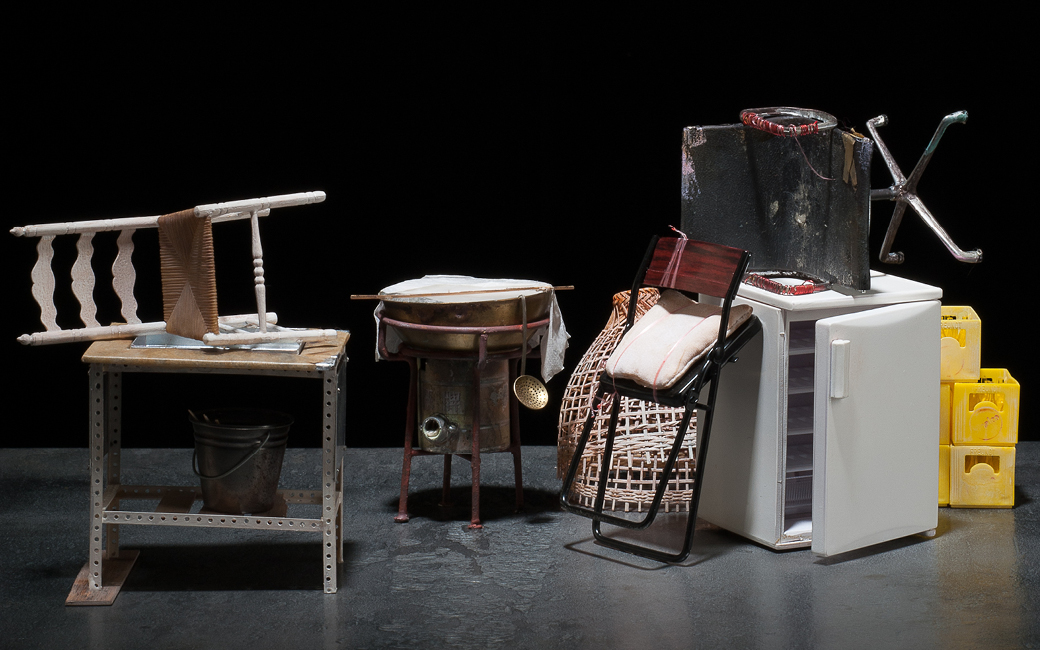
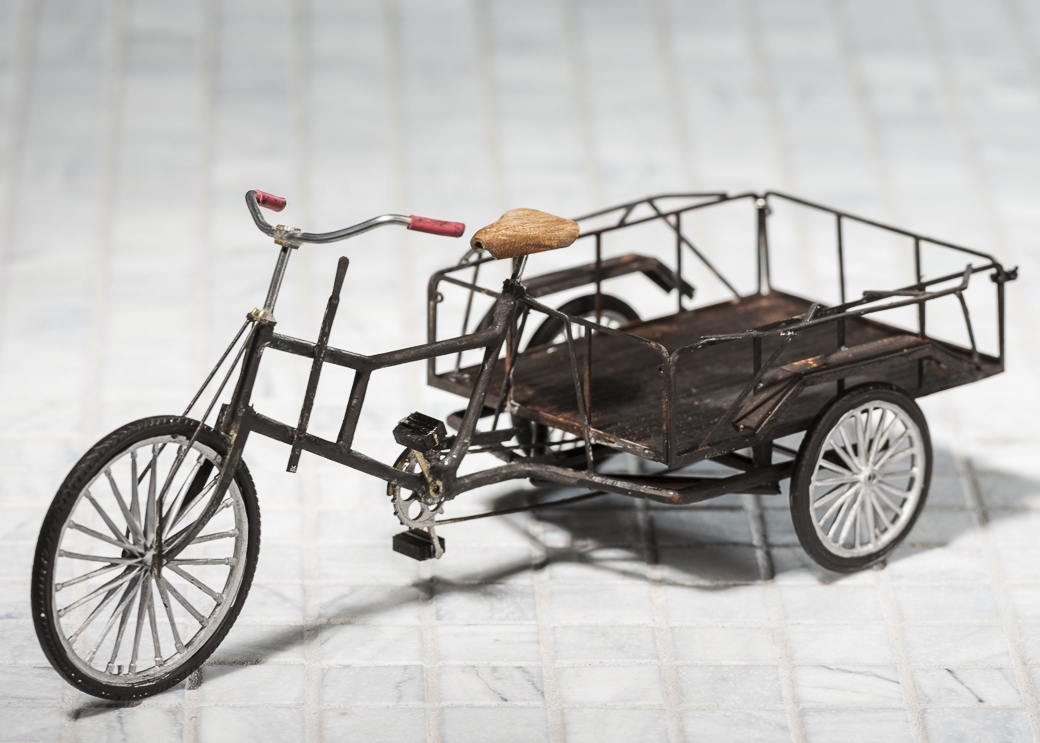
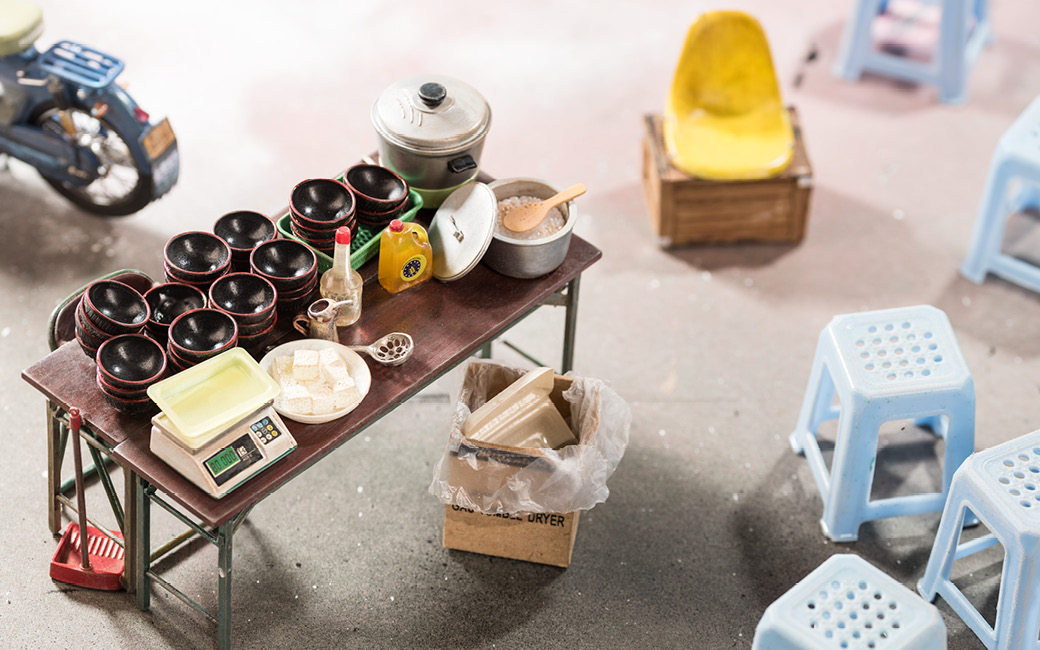
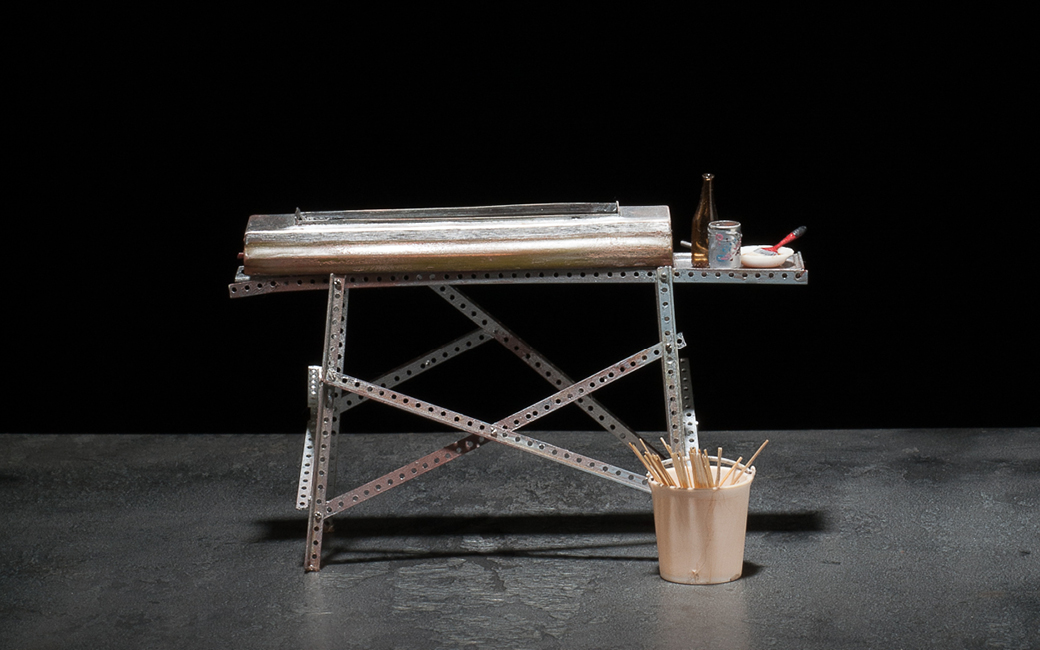
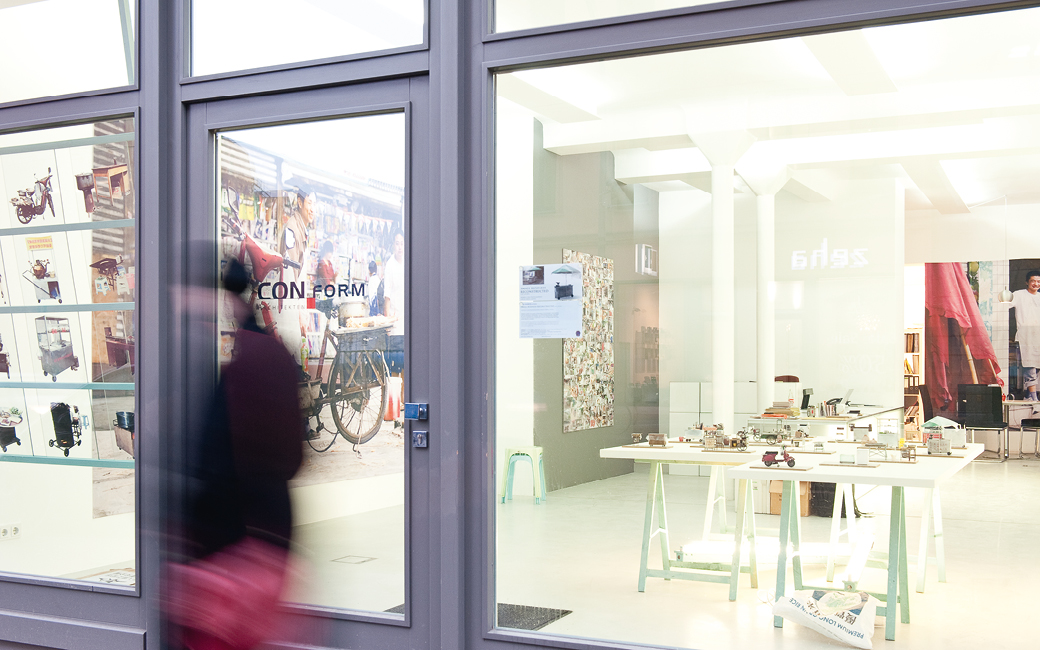
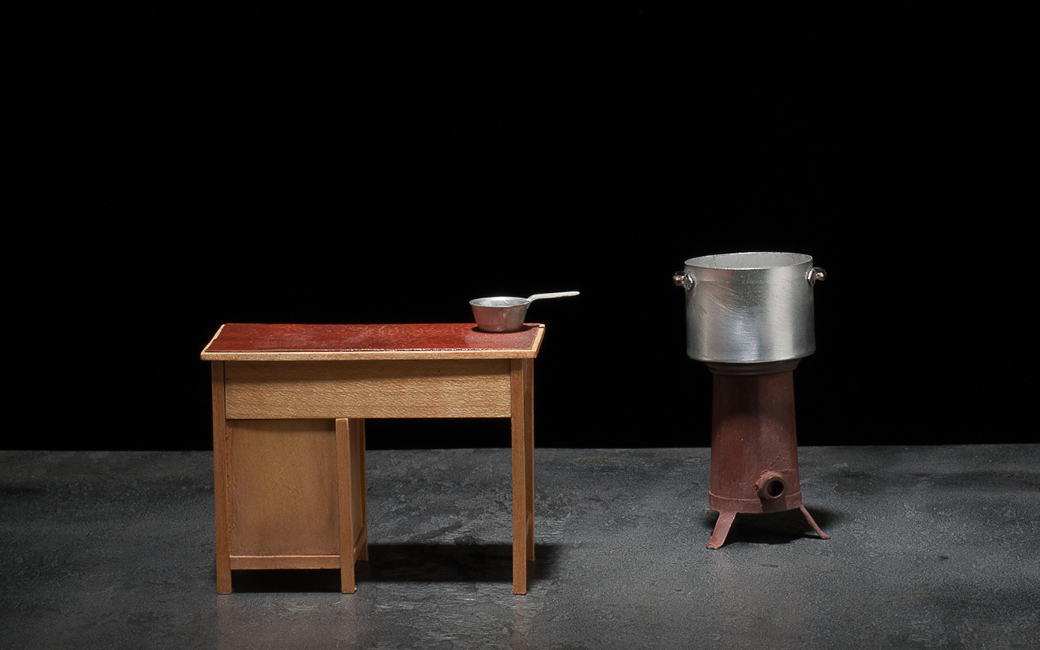
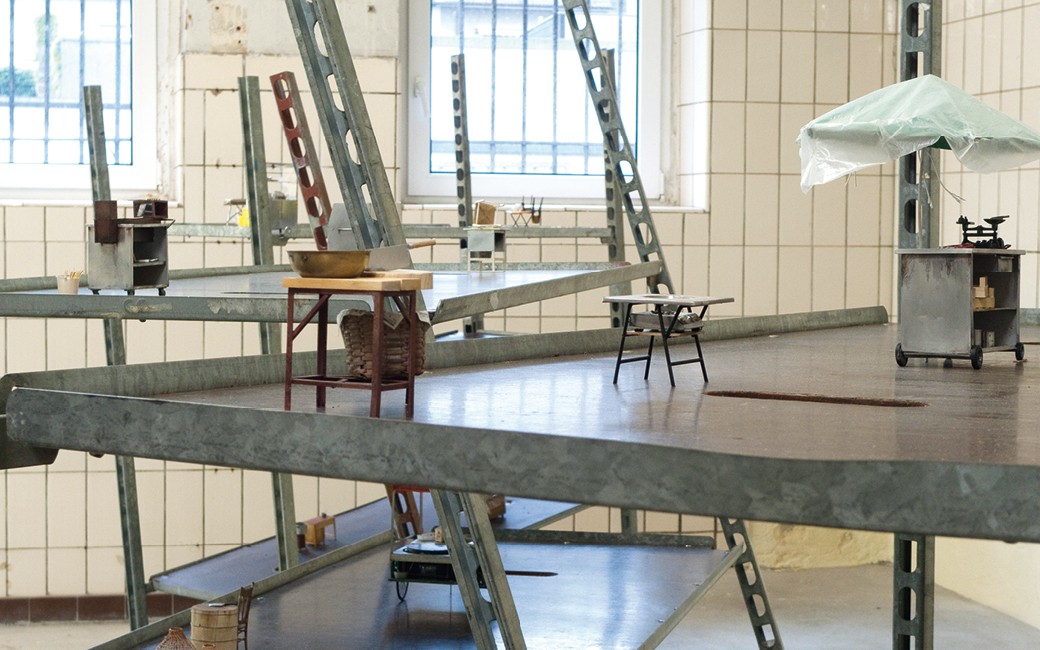
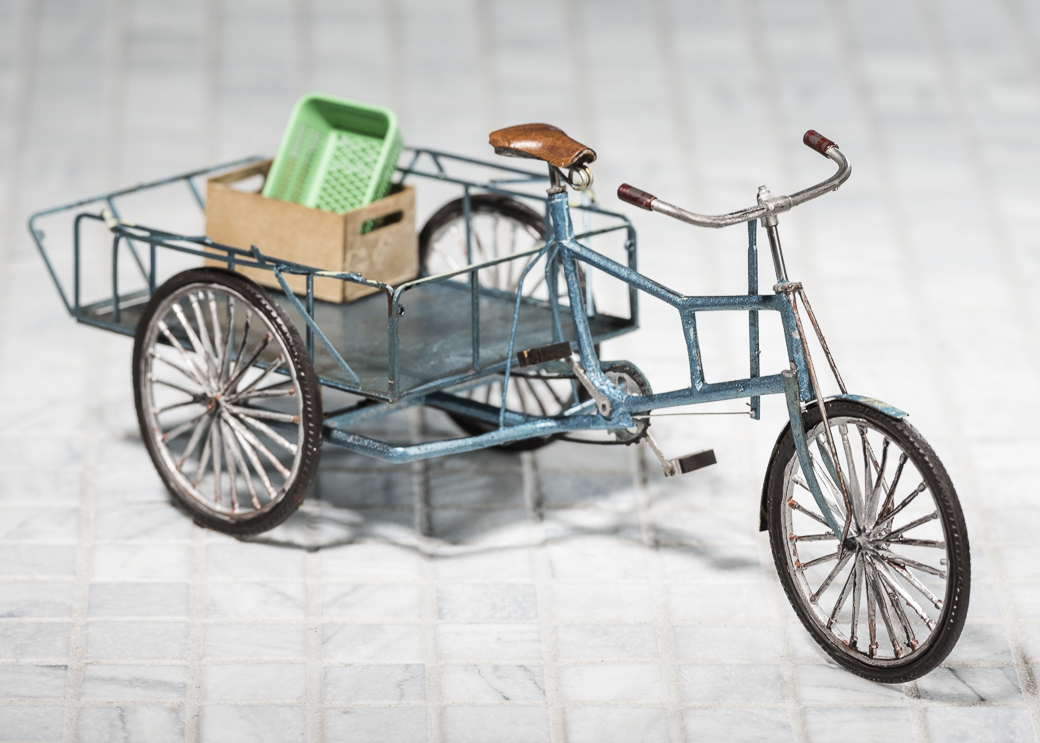
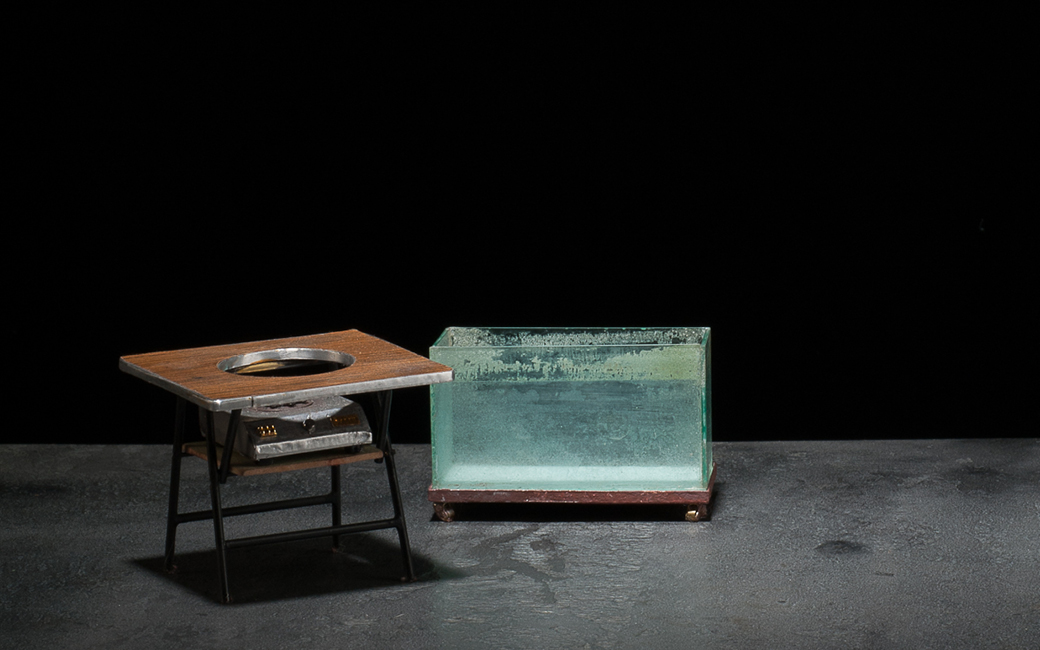
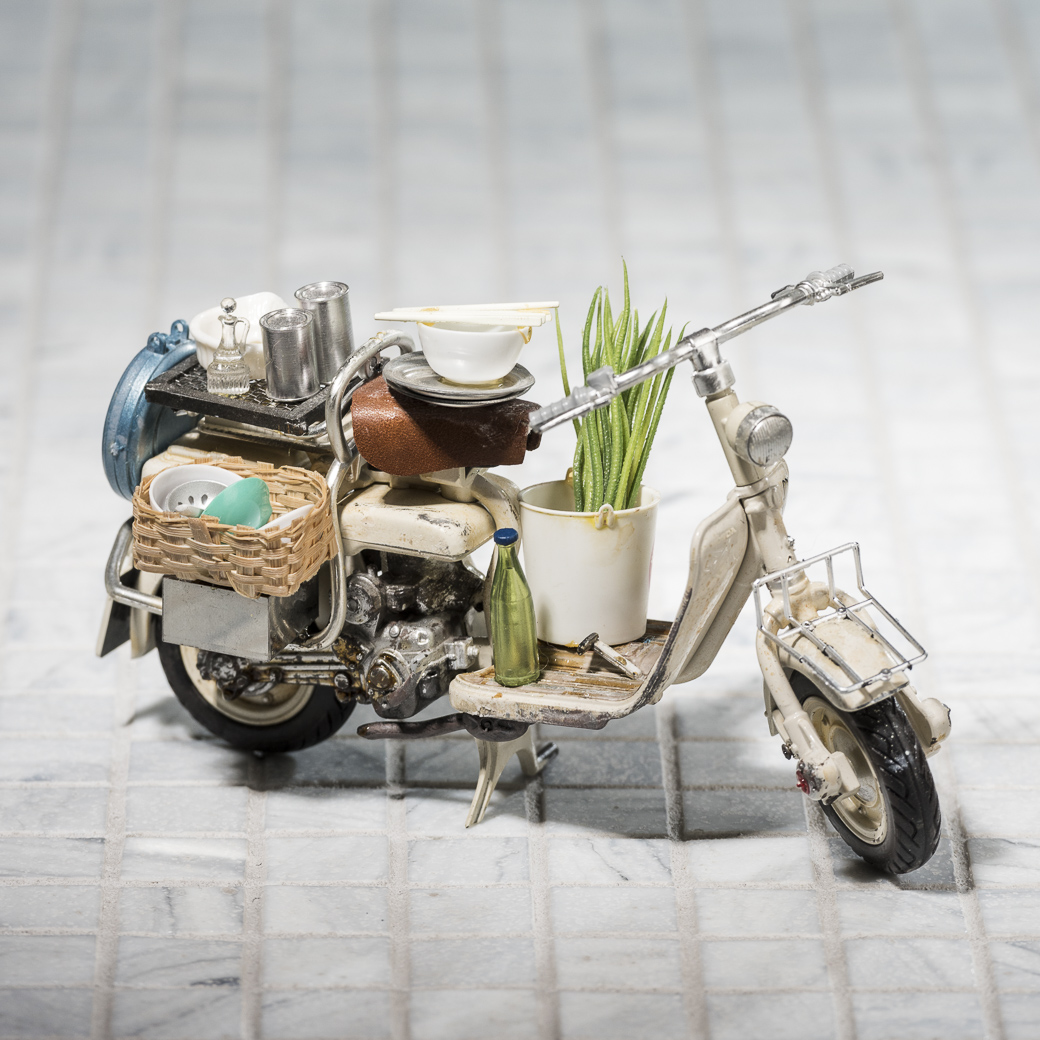
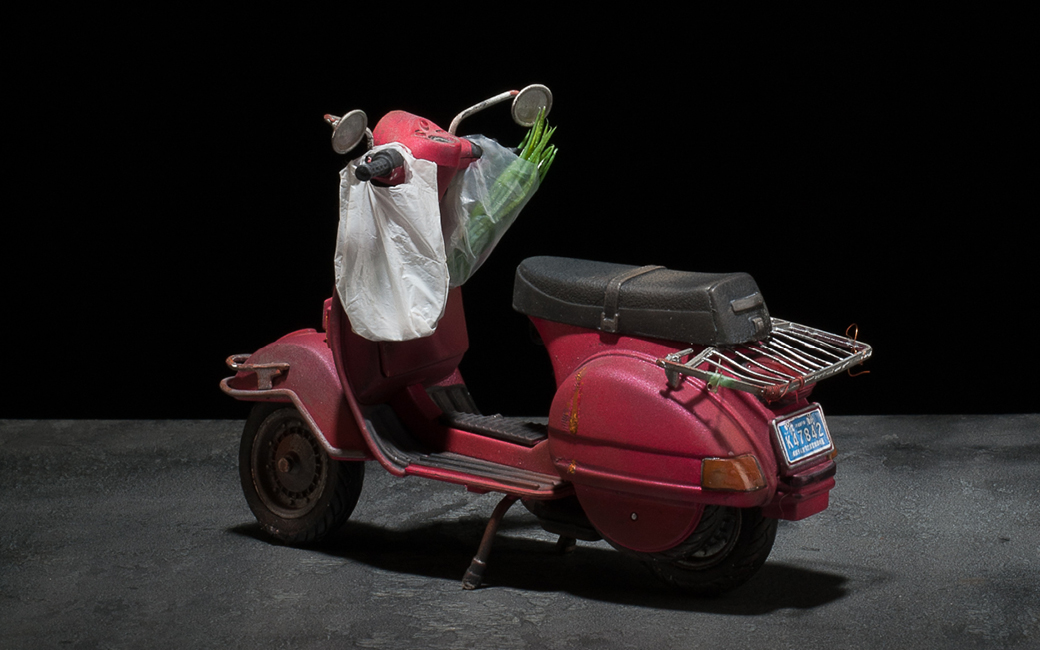
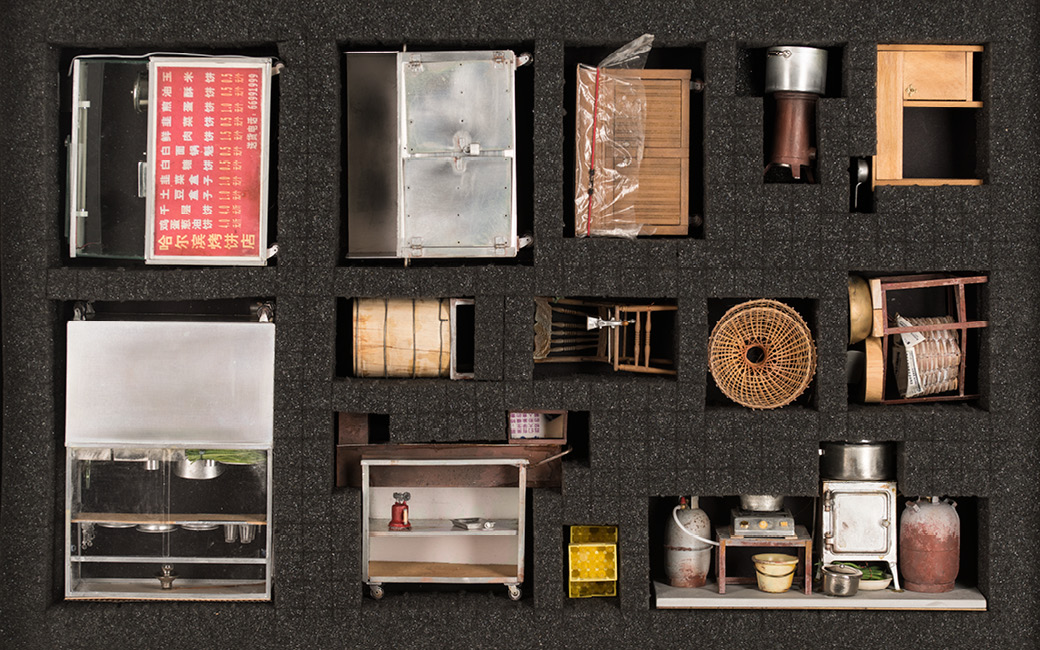
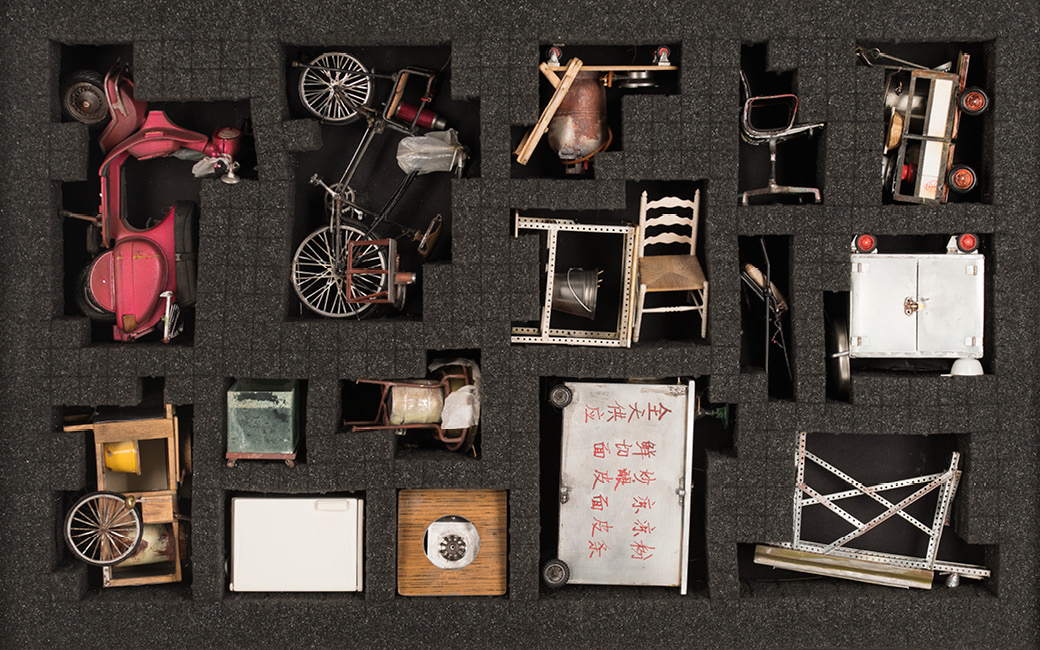
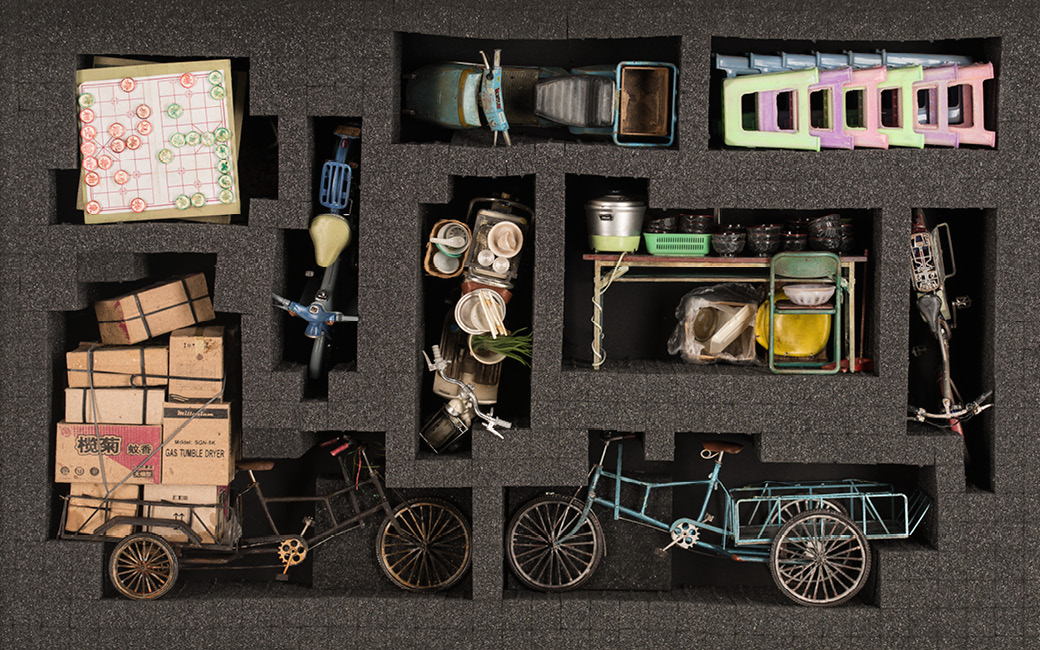
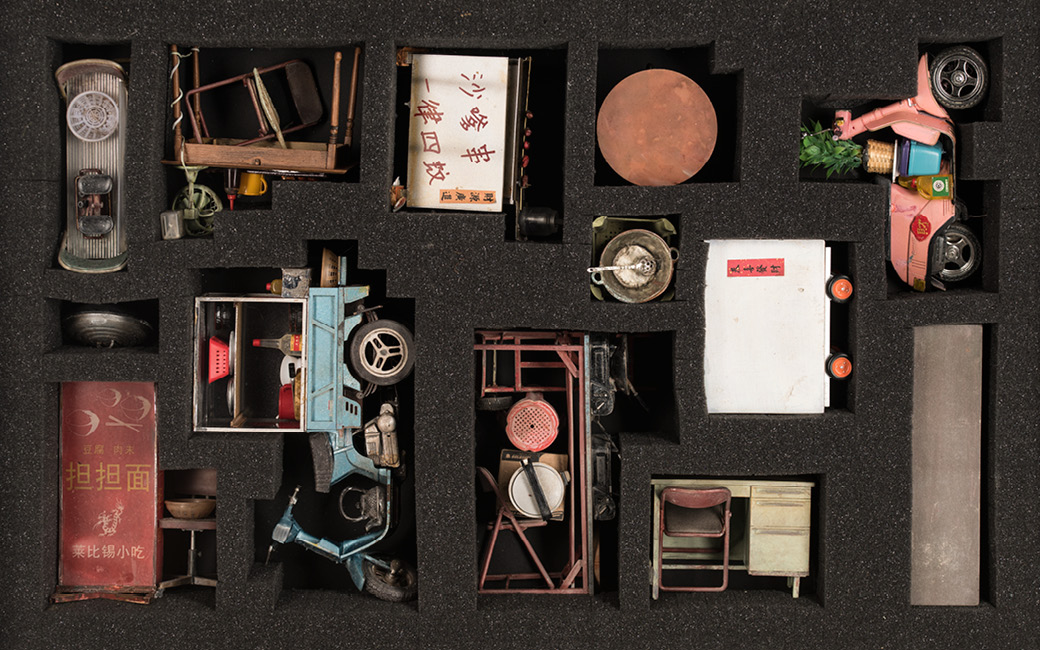
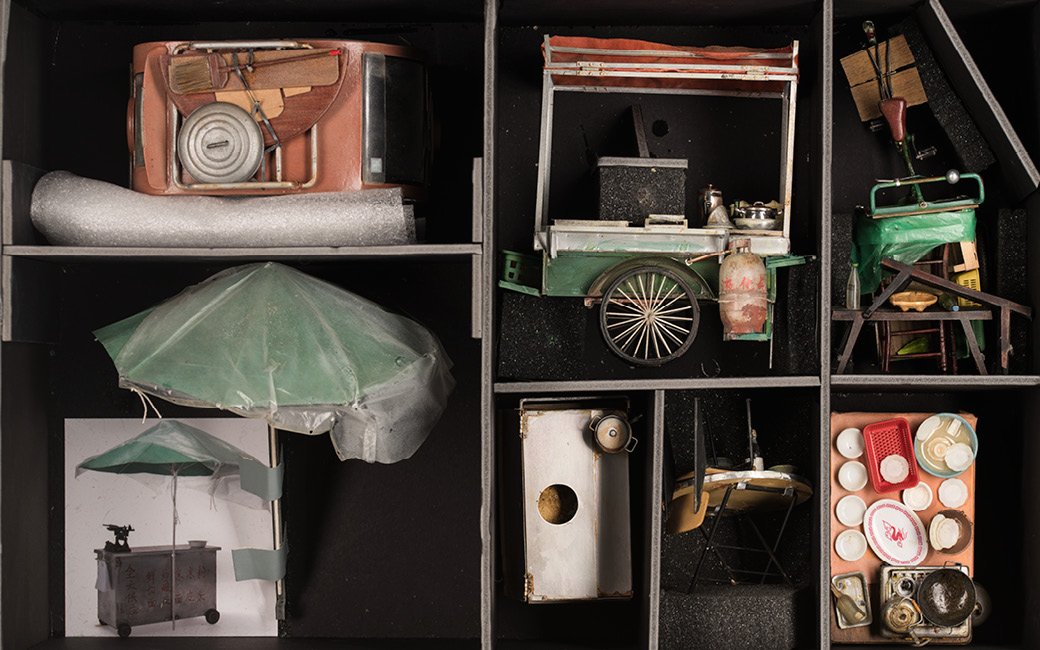
CLEANING IN PROGRESS
Lecture performance with analog slide show, 2010 onward
“For me, the objects which surround us testify to social relationships,” asserts Jo. During a 2010 trip to China, Jo was struck by how omnipresent the simple mop was in the public space. As he focused his attentions on these objects, he came to realize that their conspicuousness by doors or entranceways was intentional. They were, he came to understand, a signal or symbol of the cleanliness of this space, cleanliness being a quality often lacking in urban Chinese life.
While photographing these mops, Jo became fascinated by their incredible variety. Typically the mops he found had been woven together by hand using old rags, and then displayed in the most unconsciously creative ways.
Jo offers: “In their vibrant colours and the different materials used in making them, these mops came to represent to me the primary aesthetic of everyday life in China, an approach which is increasingly threatened by the monotony of industrial mass production.”
In their undisputed banality, the mops documented in this project stand in juxtaposition to China’s status as an up-and-coming high-tech power and the world’s largest consumer market. One result of the opening of this market and its integration in to the globalized world economy is that specific cultural characteristics are being erased and standardized, an observation reflected in the double-meaning of the project’s title CLEANING IN PROGRESS.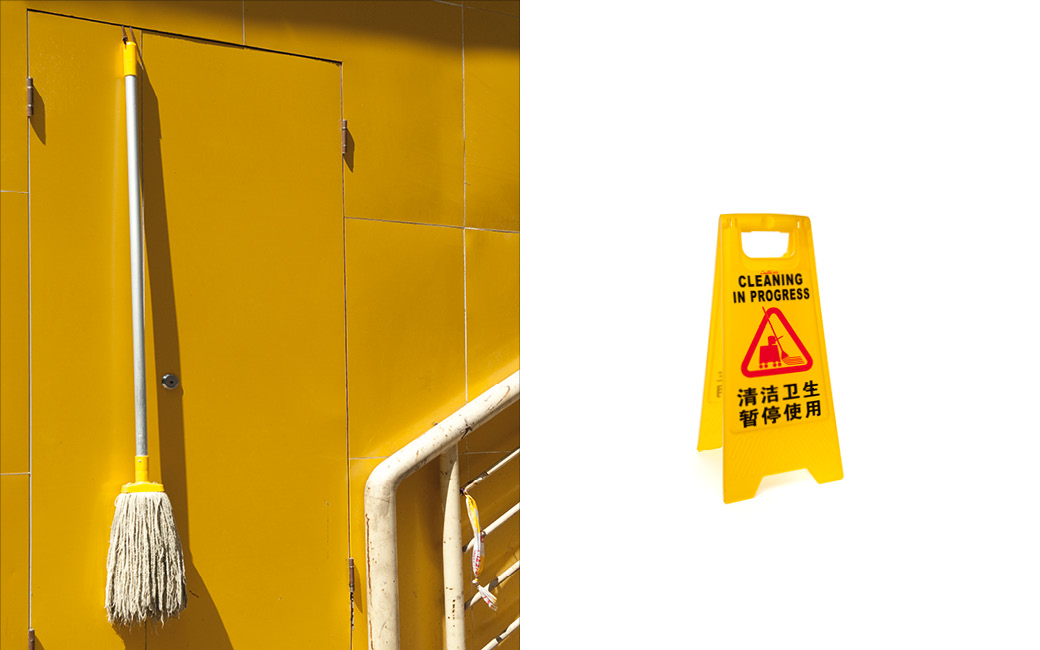
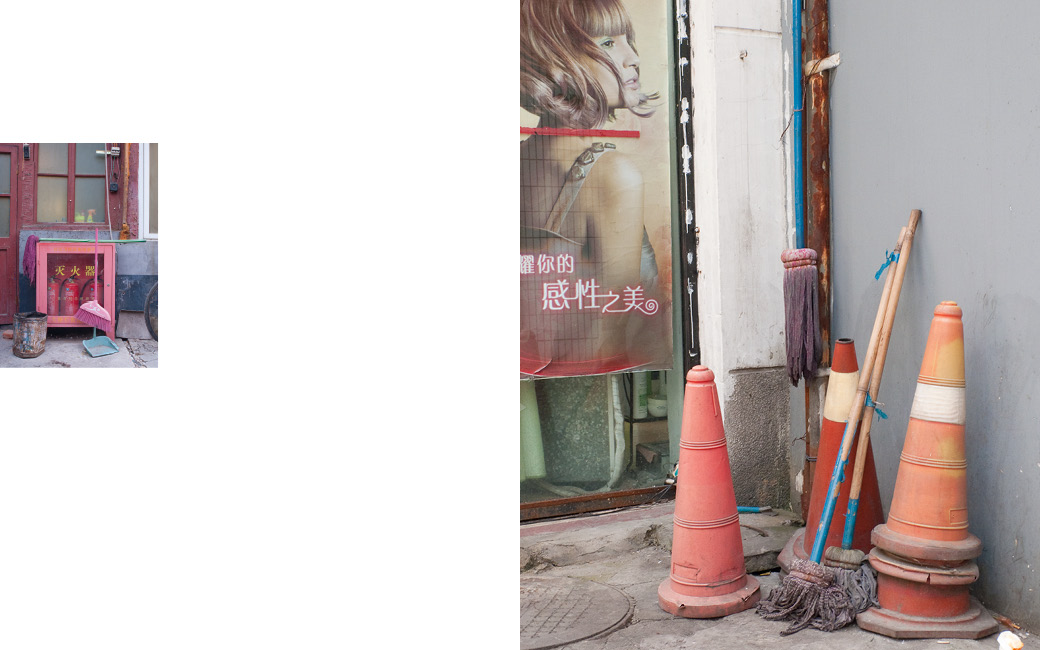
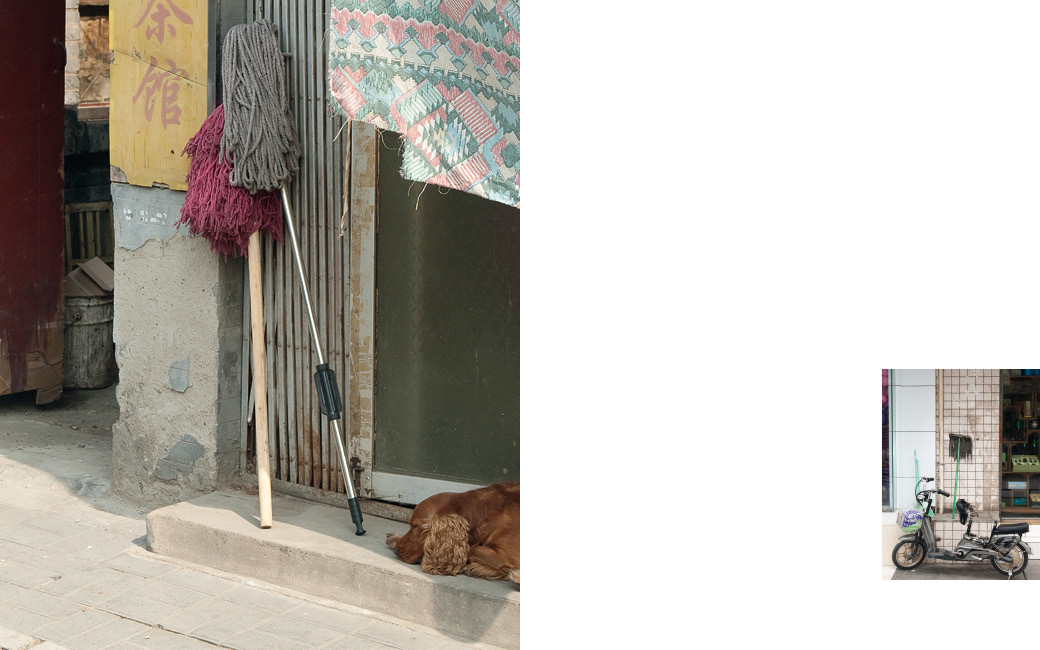
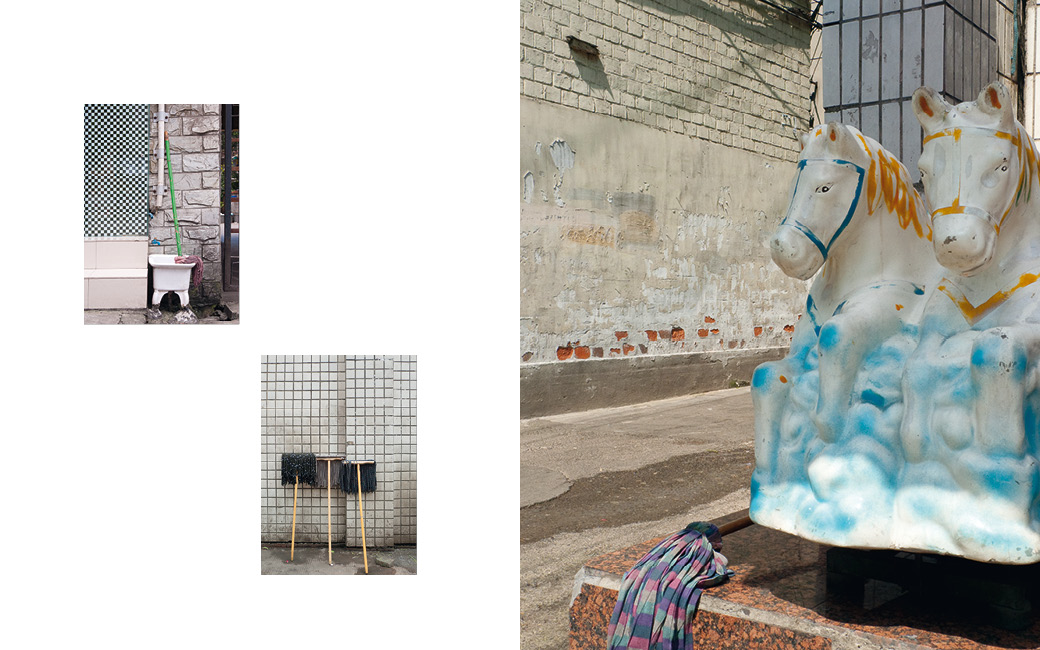
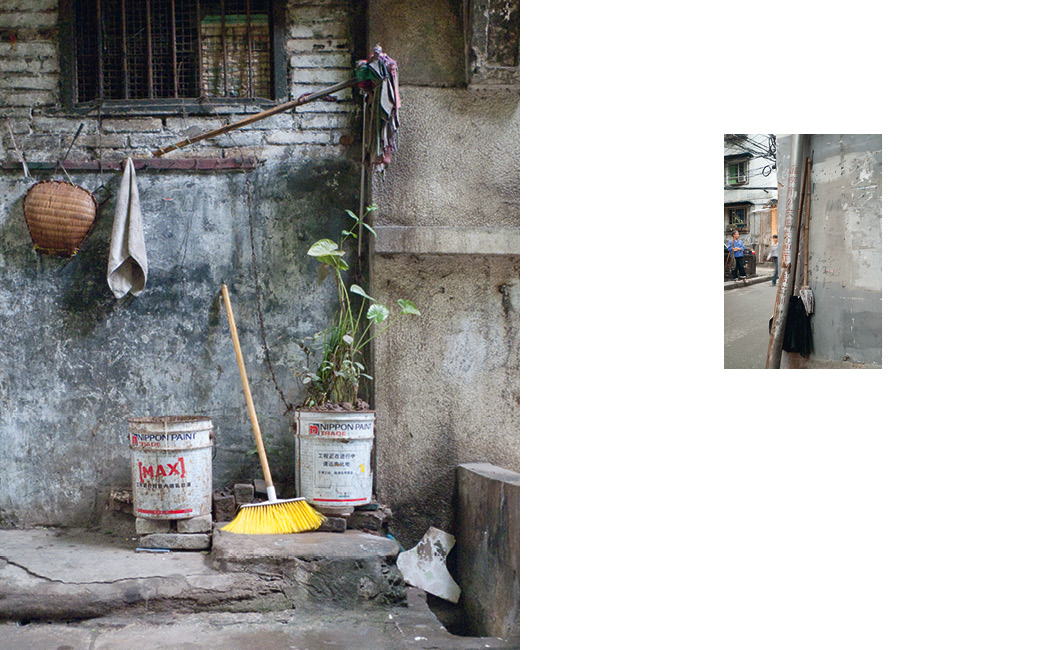
![]()
SOME MAGAZINE No. 1, ISBN 978-3-86019-081-4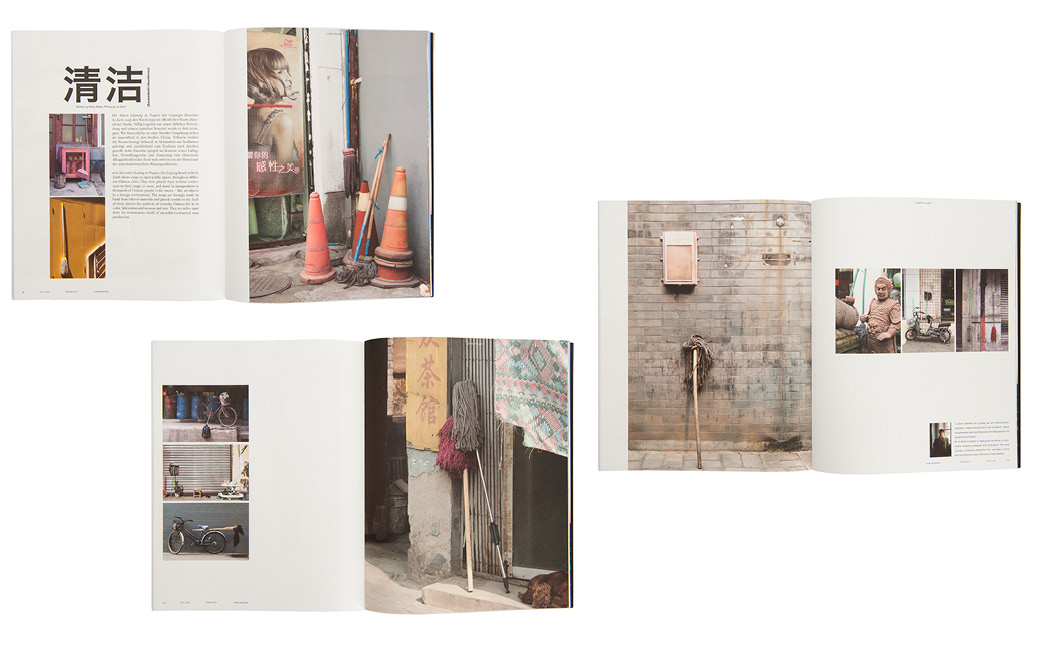
![]()
Freitag, Nr. 22, 2011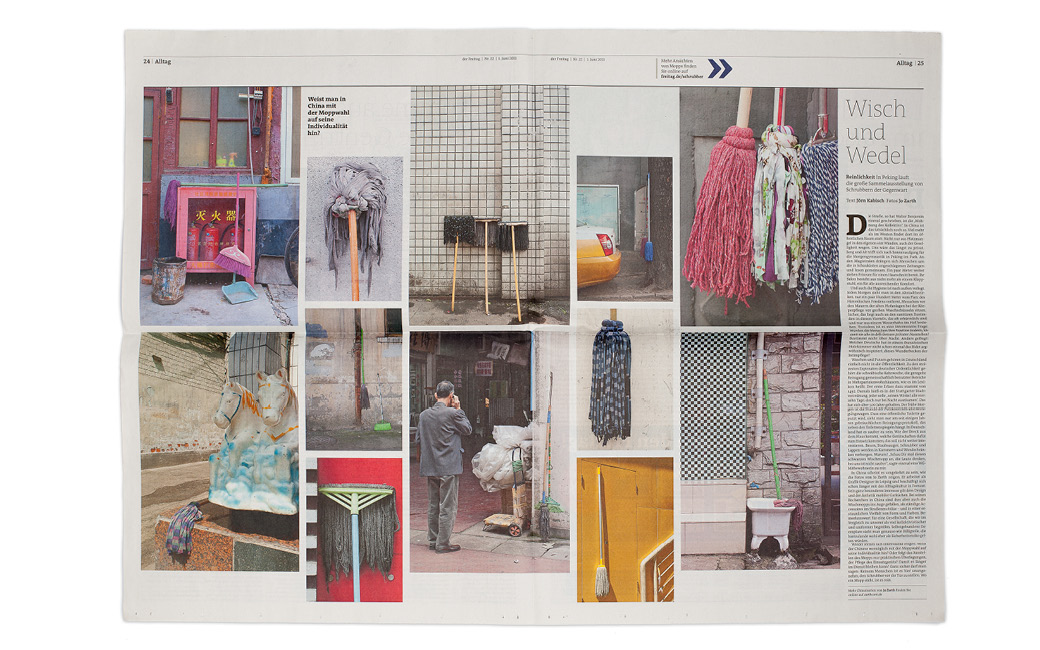
PLANKS ON BIKES
自行车架上的木板
Milan Chinatown, 2012
While in Milan’s Chinatown, Jo was intrigued by these DIY-solutions for the transport of goods. These luggage carriers are, while similar, never the same and certainly far-removed from the designs typical of a modern urban bicycle. It’s not clear if these designs are the work of one tradesman or if the bike owners have created these constructions themselves, perhaps inspired by their fellow riders.